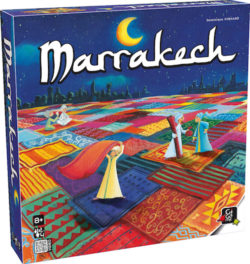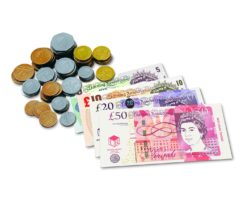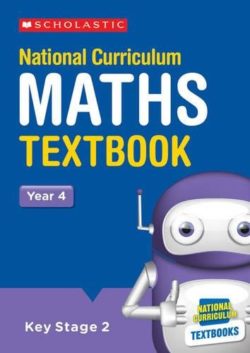No products in the cart.
Numeracy Toys
Money
Help children learn the value of money.
FILTER
Age
- 1
- 2
- 3
- 4
- 5
- 6
- 7
- 8
- 9
- 10
- 11
- 12+
Product Type
- Accessories
- Arts & Crafts
- Books
- Flashcards & Wipe-Clean
- Games
- Jigsaws & Puzzles
- Learning Resources
- Toys
Stage
- Babies
- Early Years
- Primary KS1
- Primary KS2
- Toddlers
Skill
- Communication Skills
- Creativity
- Discovering the World
- Fine Motor Skills
- Health & Self-care
- Imagination
- Independent Learning
- Languages
- Listening
- Literacy
- Managing Feelings
- Mathematical Skills
- Memory
- Mindfulness
- Observational Skills
- Physical Development
- Problem Solving
- Reading
- Scientific Skills
- Self-assessment
- Self-confidence
- Social Skills
- Speaking
- Thinking Skills
- Understanding
- Writing
Areas of Learning
- Arts and Design
- Communication & Language
- Literacy
- Mathematics
- Personal, Social & Emotional Development
- Physical Development & Fine Motor Skills
- Understanding the World
Subject
- Arts and Design
- Design & Technology (DT)
- English
- Geography
- History
- ICT
- Languages (MFL)
- Mathematics
- Physical Education (PE)
- Science
Languages
- Arabic
- Bilingual
- English
- French
- German
- Mandarin Chinese
- Polish
- Russian
- Spanish
- Welsh
Brand
- 25th Century Games
- 4M
- Abrams Books
- Action Phase Games
- Alderac Entertainment Group
- Alley Cat Games
- Amazing Tales
- Andersen Press
- Andrew Brodie Publications
- Arcane Tinmen
- Arcane Wonders
- Ares Games
- Asmodee Editions
- Atlas Games
- Atomic Mass Games
- Awaken Realms
- b small publishing
- Baby Einstein
- Bandai
- Barefoot Books
- Barrington Stoke
- Battlefront Miniatures
- Beehive Toys
- Bezier Games
- Bezzerwizzer
- Big G Creative
- Big Sky Games
- BigJigs Toys
- Blackrock Editions
- Bloomsbury
- Blue Cocker Games
- Blue Orange
- Board And Dice
- Board Game Hub
- Bombyx
- Boxer Books
- BrainBox
- Brother Wize Games
- Bushiroad
- Buster Books
- Cambridge Brainbox
- Candylab
- Capstone Games
- Catan Studios
- Cephalofair Games
- Cheapass Games
- Chessex
- Chronicle Books
- Cicada
- Cool Mini Or Not Inc
- Curiscope
- CWR
- Dantoy
- Didicar
- DK
- DT
- EDU-QI
- EDUPLAY
- Edx Education
- Egmont
- Emaan Productions
- Faber & Faber
- Fat Brain Toys
- Fine Feather Press
- Flying Eye
- Galison Mudpuppy
- Galt Toys
- Gamelyn Games
- Gamewright
- Gecko Press
- GeoSmart
- Gigamic
- GoGo
- Gowi Toys
- Graffeg
- Great Gizmos
- Green Toys
- HABA
- Hape
- Happy Cube
- Hinkler Books
- Horrible Games
- Ivy Kids
- Jar Meló
- Klutz
- Knowledge Builder
- Kumon Publishing
- Lanka Kade
- LeapFrog
- Learning Resources
- Lerner
- Letterland
- Lexie Mouse Publishing
- Lincoln Children's Books
- Little Island
- Little Tiger
- Little Wise Toys
- LOM Art
- Lonely Planet
- Lottie
- Mad Mattr
- Magic Cat
- Make It Real
- Mary Meyer
- masterkidz
- Melissa & Doug
- Michael O'Mara
- MindWare
- Mobilo
- MOLUK
- Moondance Press
- Morphun
- nanoblock
- Nebulous Stars
- Nosy Crow
- Orchard Toys
- Otter-Barry Books
- Page Street Publishing
- Paul Lamond
- Pavilion
- Petit Collage
- Plan Toys
- Playcolor
- Playmobil
- Poptacular
- Primo
- Princeton Architectural Press
- QED
- Quercetti
- Raintree
- Renegade Game Studio
- Rubbabu
- Rubik's
- Santoys
- Sassi
- Scallywag
- Schofield & Sims
- Scholastic
- Scrunch
- Shade 7 Publishing
- Shaw Magnets
- Skillmatics
- Skip Hop
- Smart Games
- Smartivity
- SmartMax
- Sourcebooks
- Storey Publishing
- Tactic
- Tate Publishing
- The Green Board Games Co
- The Puppet Company
- TickIT
- Tidlo
- Top Class
- Twirl Publishing
- Usborne
- Verdes Innovations
- Viga
- Walker Books
- Welbeck
- What on Earth
- Wide Eyed Editions
- Wilberry
- Wiz Kids LLC
- words & pictures
- WordUnited
- Workman Publishing
- Yoyo Books
- Z-Man
- ZooBooKoo
Stock status
- In Stock
- Out of Stock
Showing 1–12 of 24 results
-


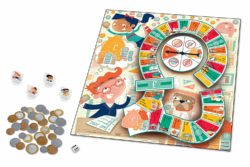

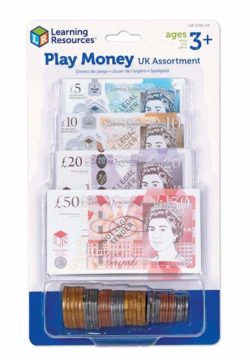

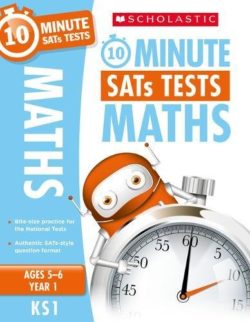

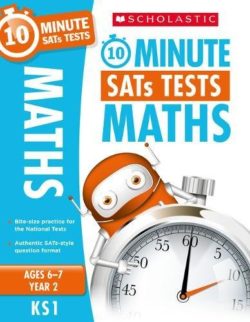

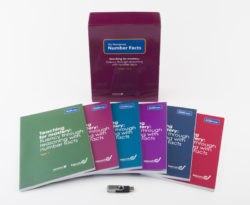

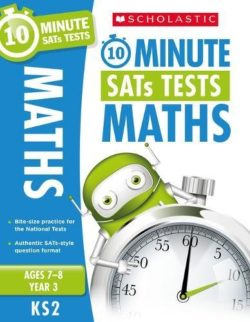

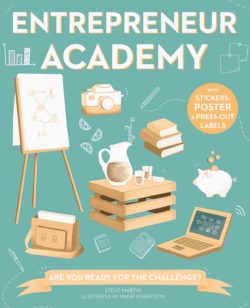 Ivy Kids
Ivy KidsAre You Ready for the Challeng...
£9.99Out of stock

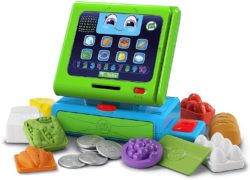 LeapFrog
LeapFrogLeapFrog Count Along Till (Pre...
£24.99Out of stock

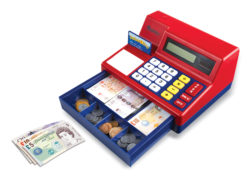 Learning Resources
Learning ResourcesLearning Resources Calculator ...
£29.99Out of stock
Considering how important financial skills are to navigating life, early education resources can help teach kids about money. Young children are growing up in a world that is becoming more fixated on fashion trends, the newest gadgets, and tastiest treats. Parents, however, still have the most influence on their children’s financial behaviours. It is important to teach children about money from an early age to give them the head start.
Teaching kids about money
Teaching kids about money does not have to be complicated. It can be easier and a lot more fun process than what most parents expect. Children learn the most from observing what their parents do. The first step in teaching kids about money is, therefore, setting a good example. If you impulsively splurge every time you go out shopping, your kids will eventually pick up the same attitude with money. If you set an excellent example for your kids, they’ll be much more likely to follow it when they get older. Playing money games for kids also make the learning process fun for them.
The key to teaching kids about money is to start early and keep a constant, age-appropriate transfer of values on how to handle money.
Money activities KS1 and money problems KS1
By the time your child turns three, they usually know how to count. This age is the perfect time to introduce them to the general concept of money. At this young age, it’s a good idea to start teaching kids about money by using physical notes and coins and avoid abstract concepts, like credit. Maths toys that use toy shop money, such as money bags and Marrakech are an effective way to help kids develop an immediate connection between the amount of money they have and what they can spend.
Kids also love cash because it feels more real to them. It can also help teach them the importance of saving as they can slide the coins into their piggy banks. Toy shop money also gives your kids the chance to mix and match notes and coins and helps them understand that quantities are measures irrespective of the type of items being counted. Playing with notes and coins will also help your kids improve their primary resources maths skills. For example, you can show your child that two fives and one ten are the same as one twenty pound note.
Money KS1 and money worksheets KS1 printables
There are four money KS1 fundamentals that you can teach your child:
Earning
While your 3-year-old cannot take up a day-job to earn money, they can earn an allowance by carrying out household chores, like washing the dishes. This concept is an excellent way to teach your kids that money is earned and not just given for free. This also allows them to make the emotional connection that work yields future rewards. As they get older, the jobs should get more challenging, and the commissions should pay more.
Saving
After your kids start earning their own money, they are going to realize that they cannot afford some more expensive items unless they save. If they have set their eyes on something that requires a sizeable amount of money, you can have them do extra chores or agree to match a percentage of their saved earnings. You also need to regularly praise your child if they attain a saving goal in order to keep them motivated.
Spending
When you teach your child how to spend responsibly, it develops their decision-making skills. Kids usually spend money they have worked for more carefully money they have been given. To teach children about budgeting, you can give them three jars to keep their money. One jar would be for saving, another for spending, and the other one for sharing. When your child earns money, you can help them divide the money among the jars, and explain to them the importance of each jar.
Giving
Instilling charitable habits at an early age is a great way to teach your child to have empathy for those in need. You can also help your child decide to give the money in the sharing jar to a homeless shelter, a charity organization, or a friend’s cause. Let them know that the money and the decision of where to give it is solely theirs.
Money EYFS and Money games for kids
Young children might not fully understand the value of money, but they can start learning how the different notes and coins look like. One good way to do this is to use numeracy toys to play money games for kids, such as the coin value game.
Young kids also love to play“store”. You can create a small pretend-supermarket for them using a toy cash register and fruit counters. One child can do the shopping while you or their sibling handles the cash register. Trading toy shop moneywill enable your child to understand the fundamentals of business.
Another game that you can play with your kids is “Is the price right”. You can play this game by randomly presenting items for sale, and give out a variety of approximate prices. For example, you can offer a bottle of juice and ask if it costs £0.50, £2.50 or £6. Playing this game will help your kids understand the relative values of different objects.
Teaching kids about money at any stage might be a challenging and time-consuming activity. If you want your children to know how to grow up to be excellent at managing their money, teaching them now will be worth it.



 01782 698558
01782 698558


